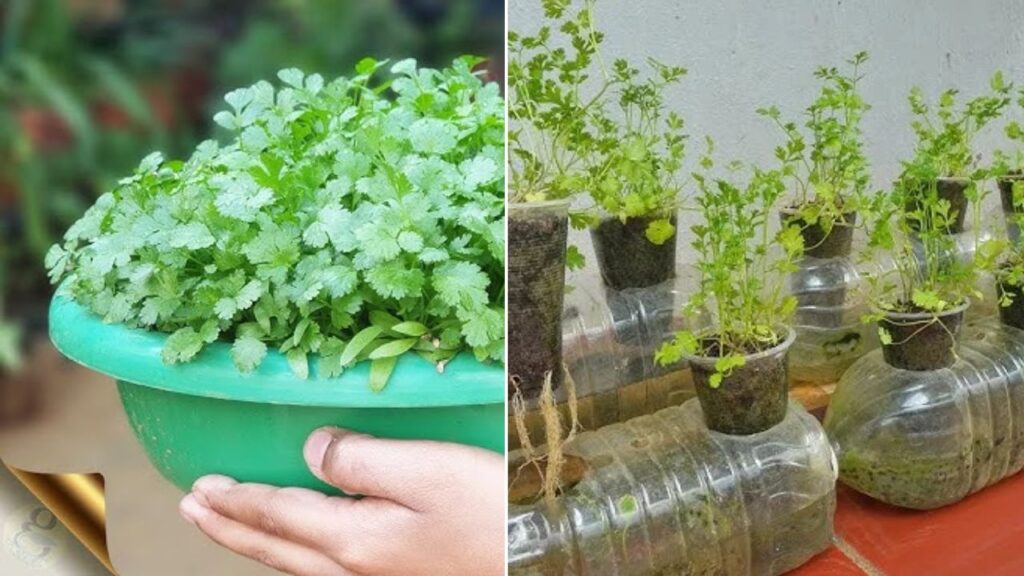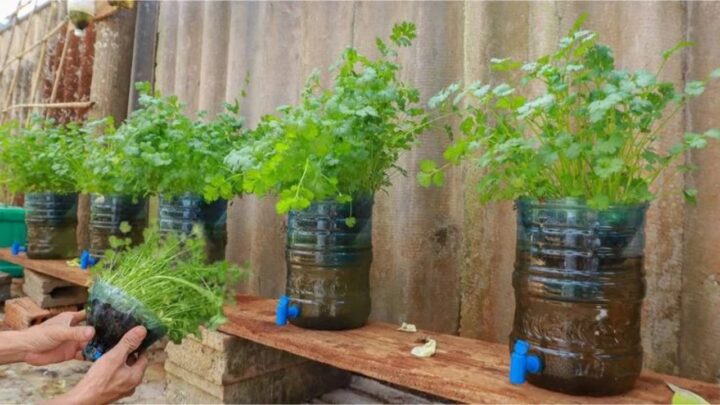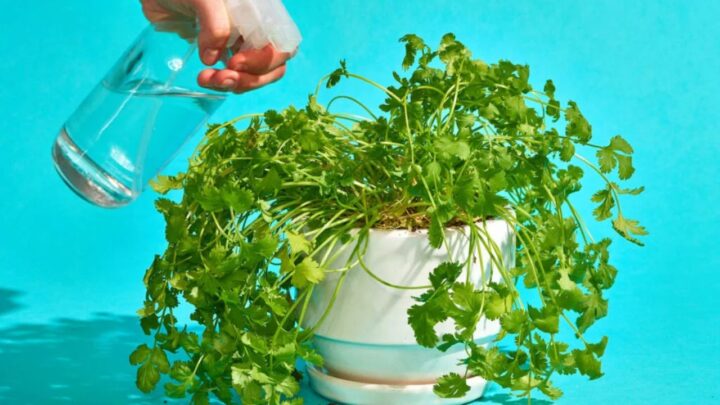Grow Cilantro in Plastic Bottles – A simple, space-saving method loved by Americans! It’s an eco-friendly and cost-effective way to enjoy fresh herbs right from your kitchen window without needing any gardening experience.

Why Americans Are Growing Cilantro in Plastic Bottles
Cilantro has become a favorite kitchen herb across the U.S., and growing it in plastic bottles is a clever solution for those with limited space. With this easy method, you can recycle bottles while producing fresh herbs year-round. Many Americans prefer this technique because it’s affordable, requires minimal care, and works even for beginners. The method helps reduce waste and promotes sustainable living, turning everyday bottles into mini garden planters that fit perfectly in small apartments or balconies.
Benefits of Growing Cilantro at Home
Growing cilantro in reused bottles brings multiple benefits beyond just convenience. You get chemical-free herbs, save money, and play your part in reducing plastic waste. Plus, cilantro grows quickly, allowing for multiple harvests throughout the year.
- Eco-Friendly: Reuse plastic bottles instead of discarding them.
- Budget-Friendly: Save on store-bought herbs.
- Low Maintenance: Cilantro grows easily with minimal attention.
- Compact Design: Fits well in kitchens, balconies, or windowsills.
- Fresh Supply: Enjoy flavorful herbs anytime you cook.

Step-by-Step Guide to Grow Cilantro in Plastic Bottles
- Step 1: Prepare the Plastic Bottle
Take a clean 2-liter plastic bottle and cut it horizontally in half. The bottom half will serve as your planter. Make 3–4 small drainage holes at the base to let excess water escape. Wash and dry the bottle properly before adding soil.
- Step 2: Choose the Right Soil Mix
Fill the bottle with a mix of potting soil and compost. Cilantro prefers light, well-drained soil with a slightly sandy texture. Avoid using heavy clay soil as it may retain water and cause root rot.
- Step 3: Sow Cilantro Seeds Evenly
Scatter the seeds evenly across the soil surface and lightly press them in using your fingers. You can soak the seeds in warm water for a few hours beforehand to help them sprout faster. Cover them with a thin layer of soil.
- Step 4: Provide Water and Sunlight
Water the soil gently to keep it moist but not soggy. Place the bottle near a sunny window or balcony where it can receive at least 4–5 hours of sunlight daily. Cilantro thrives in bright, indirect sunlight.
- Step 5: Watch Your Cilantro Grow
Within 7–10 days, you’ll notice small green sprouts emerging. Continue watering lightly every few days. Once the plants grow about 5–6 inches tall, you can start harvesting a few leaves at a time.
- Step 6: Harvest and Regrow
Cut only the top leaves while leaving the lower stems intact. This helps new shoots grow back faster. You can enjoy multiple harvests from the same plant if you water and care for it regularly.

Extra Tips for Growing Cilantro Successfully
- Use transparent bottles to monitor soil moisture easily.
- Rotate the bottle every few days for balanced sunlight exposure.
- Avoid overwatering—cilantro prefers moist but not soaked soil.
- Add organic fertilizer once every 3 weeks for better growth.
- Trim flowering stems early to extend leaf production.
FAQs
How long does cilantro take to grow?
Cilantro usually takes 7–10 days to germinate and about 3–4 weeks to be ready for harvest. It grows faster in warm, bright conditions.
Can I regrow cilantro from cuttings?
Yes, you can regrow cilantro from healthy stems placed in water until roots appear, then transfer them into your prepared bottle planter.
Does cilantro need direct sunlight?
Cilantro grows best in bright, indirect light. Direct sunlight for more than 5–6 hours may dry out the soil too quickly.
How do I prevent pests in my bottle garden?
Keep the area clean and occasionally mist the plant with a mild neem oil spray to keep pests away naturally.
Growing cilantro in plastic bottles is one of the easiest gardening hacks Americans have embraced in 2025. With a few simple steps, you can turn household waste into a fresh source of greens. Start your mini indoor herb garden today and enjoy homegrown flavor in every meal — it’s simple, sustainable, and incredibly rewarding!




